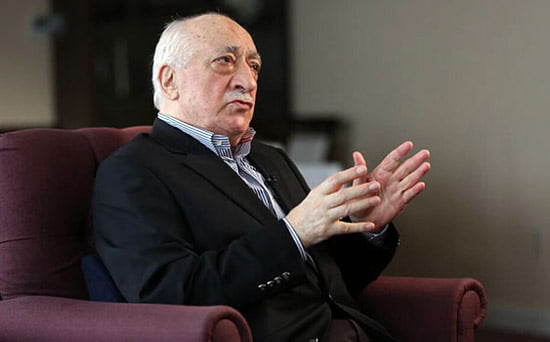Gulen calls for new constitution in Turkey

Date posted: March 10, 2014
DANIEL DOMBAY
Fethullah Gulen, the Islamic preacher embroiled in a battle with the Turkish government that has shaken the country, has redoubled his criticism of Recep Tayyip Erdogan, calling for a new constitution to rein in rights he says are under siege.
In some of his most explicit comments since the December eruption of the feud between the Turkish prime minister and his own movement, Mr Gulen wrote in the Financial Times that “a small group within the government’s executive branch is holding to ransom the entire country’s progress”.
He highlights recent laws passed by Mr Erdogan’s Islamist-rooted AK party that increase government controls over judicial appointments and internet access, while warning that a pending legislative proposal by the party “would give Turkey’s intelligence agency powers akin to those claimed by dictatorial regimes”.
In turn, the prime minister accuses Mr Gulen’s followers of establishing a “parallel state” within Turkish institutions that is plotting against the democratically elected administration.
Mr Gulen said in his article that his movement has “no interest in the privileges of power” and notes what he called his followers’ “purposeful absence from political office.” Despite calls from Mr Erdogan for the preacher to return to Turkey from the US, Mr Gulen adds that he would remain in “spiritual retreat” and would refrain from endorsing any political party.
However, Gulenist media now clearly favour the country’s opposition, and the AK party has accused Mr Gulen’s followers of trying to infiltrate large swaths of the Turkish state for political purposes, in addition to its strongholds in the judiciary and police service.
Mr Erdogan accuses the Gulenist movement of leaking tapes to the internet, in which the prime minister appears to be involved in illegal acts, such as hiding money from a corruption probe, interfering in state tenders and putting pressure on the judiciary. While Mr Erdogan says some of the tapes are the product of fabrication, he adds that the Gulenists were spying on himself, his family and many other officials.
“This is not a religious community at all,” Mr Erdogan said recently of Mr Gulen’s movement. “This is a completely political organisation that does everything, including espionage.”
Mr Gulen has denied such claims, while warning in his article that the government’s approach dangerously mixes politics and religion. Although the preacher calls for a new constitution to guarantee Turkish citizens’ rights, an effort to agree a new charter recently collapsed after more than two years of effort with little prospect of a further initiative amid the political polarisation.
Recent days have seen a steady stream of tapes emerging, appearing to show Mr Erdogan orchestrating negative media coverage of the corruption inquiry, which he depicts as a Gulenist plot, as well as senior officials seeking to keep government expenditures from auditors and, in one instance, discussing a €10m bribe.
None could be authenticated.
The leaks are widely expected to reach a climax ahead of March 30 local elections that Mr Erdogan depicts as a referendum on his rule.
In a sign of the internationalisation of the battle, Mr Erdogan recently revealed he was discussing the closure of Gulenist schools – which are present in about 140 countries around the world – with the government of Pakistan, and suggested other jurisdictions could also move against the schools.
The prime minister also said he had discussed the possible extradition of the US-based Mr Gulen in a telephone conversation with President Barack Obama last month, and had received a favourable response.
But a White House official said the Turkish prime minister’s account of Mr Obama’s comments was “not accurate”, adding that during the conversation “the president noted the importance of sound policies rooted in the rule of law” – an implicit criticism of Mr Erdogan’s management of the country.
Source: Financial Times , March 10, 2014
Tags: Democracy | Fethullah Gulen | Hizmet (Gulen) movement | Turkey |
























